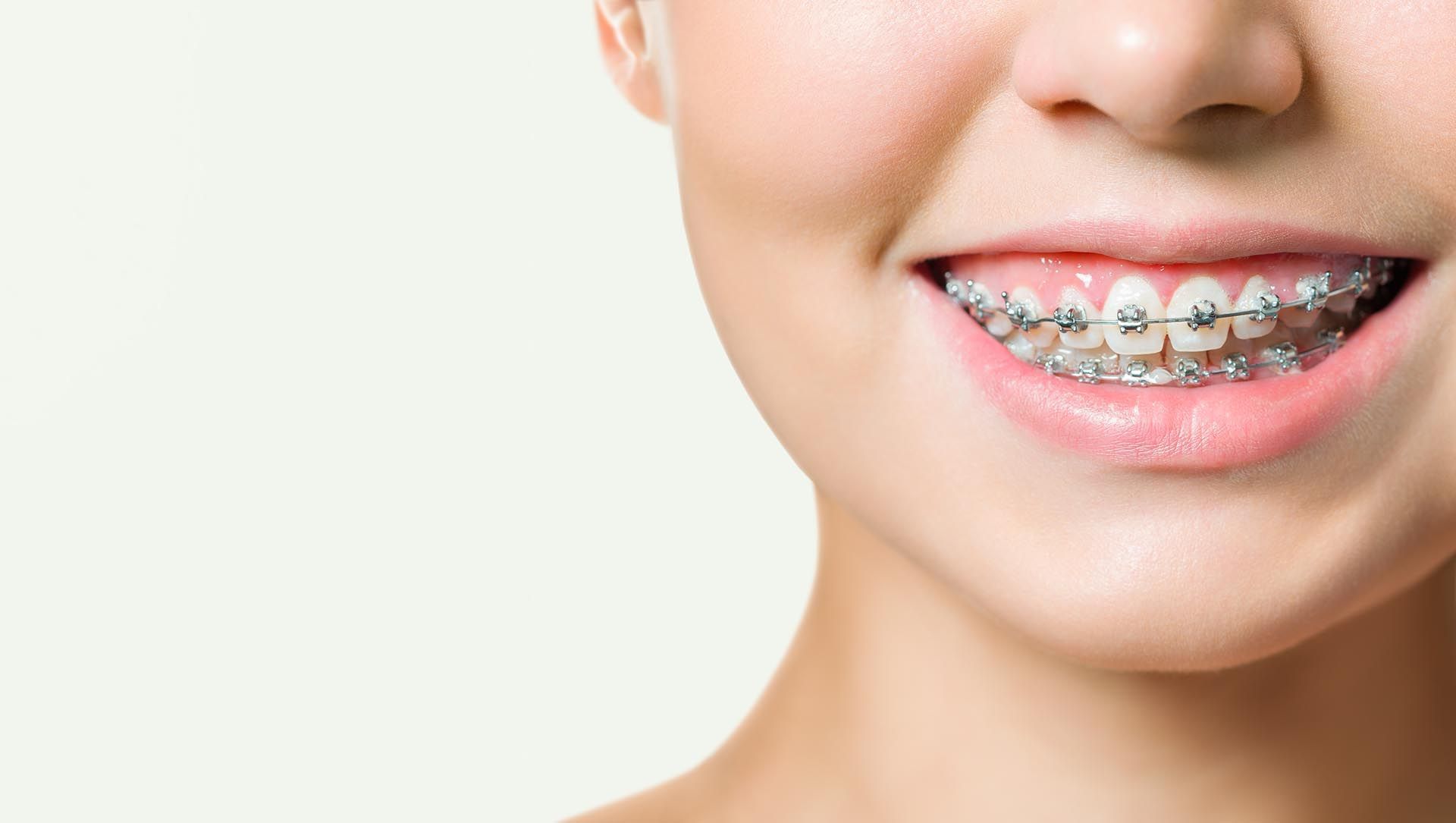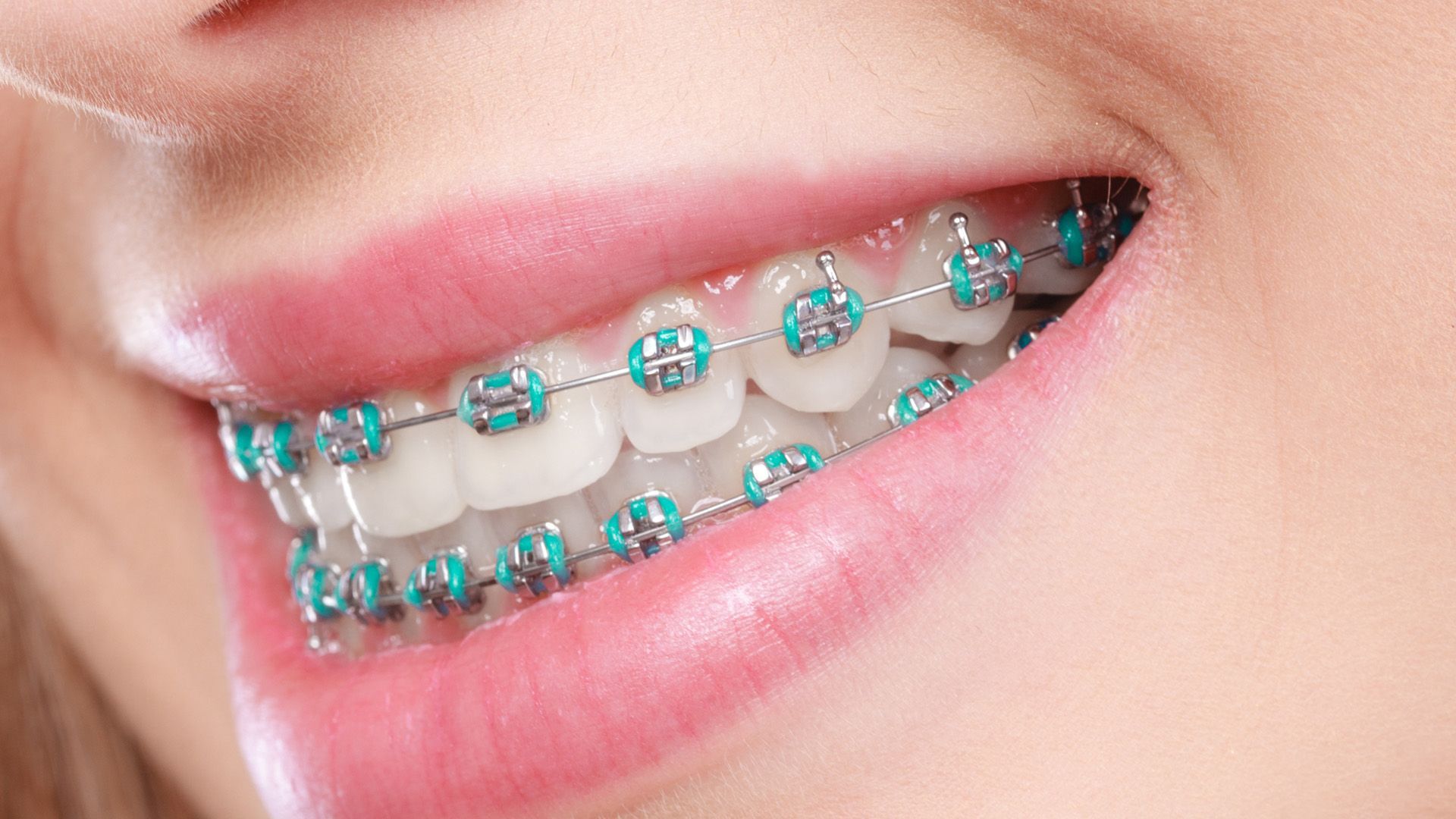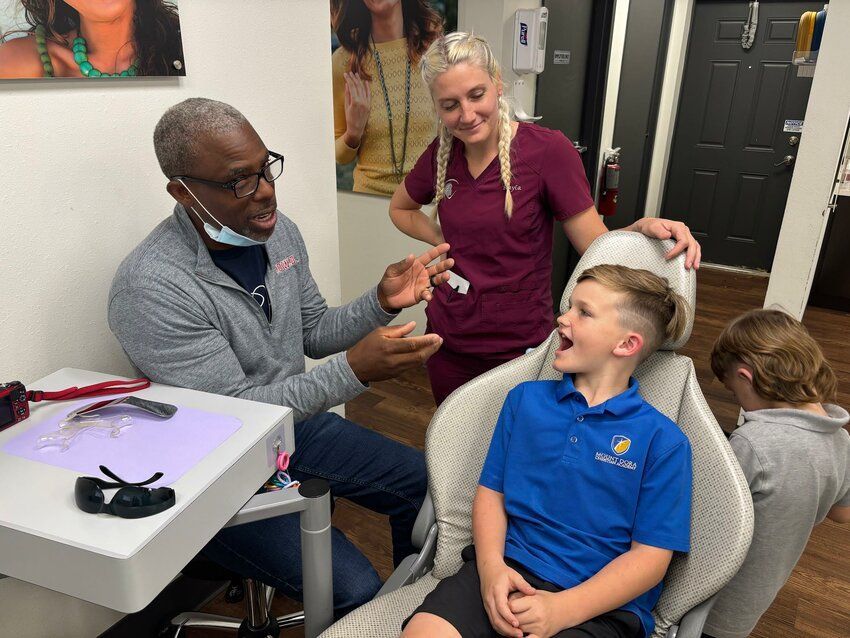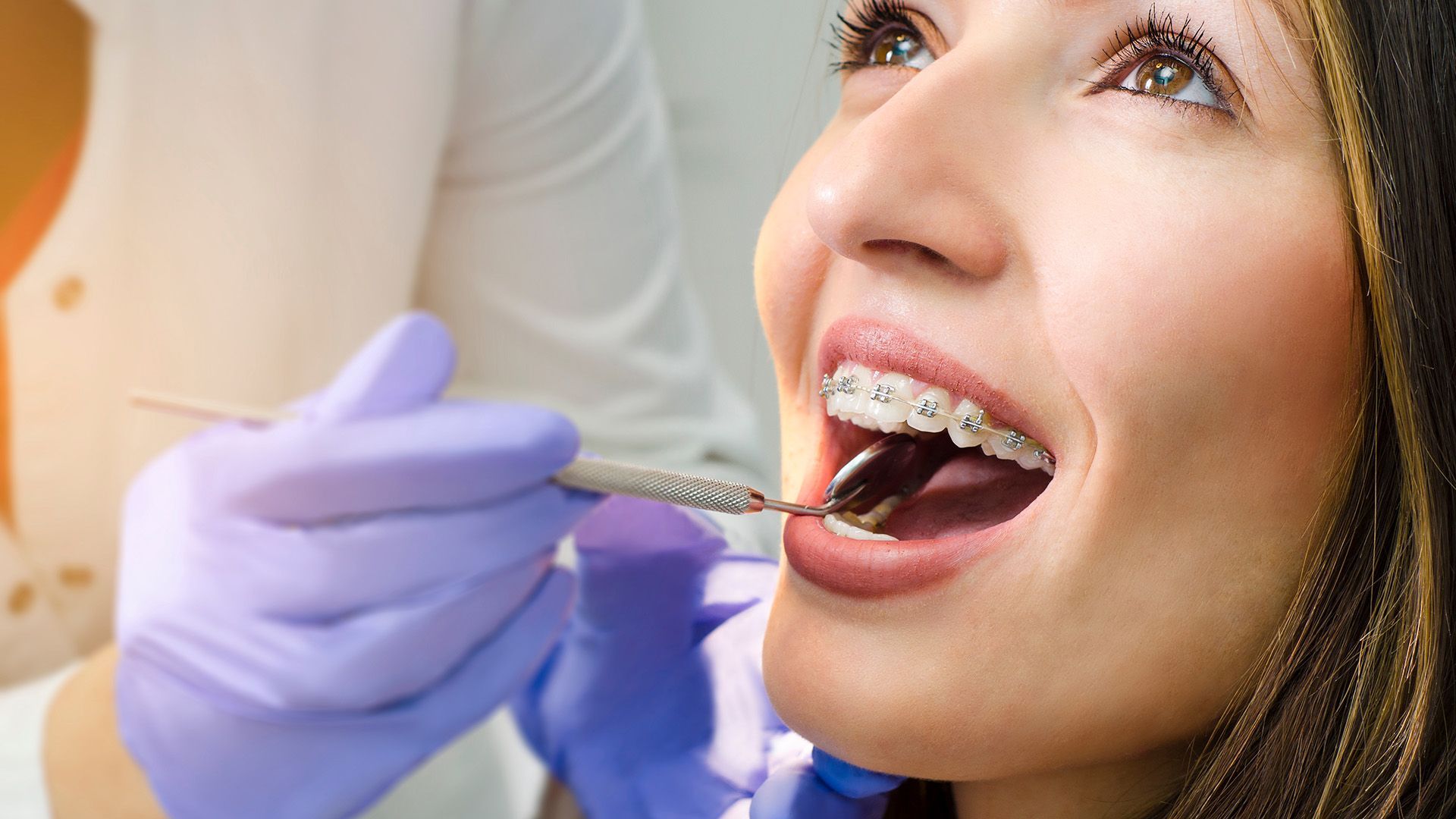Straightening Teeth, Braces & More
Welcome to Baptiste Orthodontics, where we prioritize your confident smile. If you're seeking a solution to straighten your teeth, braces could be the perfect answer. Teeth braces are a widely used orthodontic treatment designed to correct misaligned teeth and enhance your overall oral health. In this comprehensive guide, we will explore braces, detailing the procedure, potential risks and benefits, recovery expectations, and when to seek professional advice. Our experienced orthodontists are dedicated to providing exceptional care to help you achieve the smile you've always desired.

Overview
Braces, often referred to as orthodontic braces, are specialized devices used by orthodontists to correct misaligned teeth and jaws. These devices comprise brackets, wires, and bands that work in tandem to apply gentle pressure on the teeth, gradually moving them into their desired positions.
Individuals choose teeth braces for a variety of reasons, with the most common being the improvement of their smile's appearance. Crooked or crowded teeth can impact self-confidence and make people hesitant to smile. Braces for adults can align the teeth, leading to a more aesthetically pleasing smile.
Beyond aesthetics, teeth braces significantly contribute to oral health. Misaligned teeth can be challenging to clean properly, increasing the risk of tooth decay, gum disease, and other dental issues. By straightening the teeth, braces make it easier to maintain good oral hygiene.
There are several types of braces available to cater to individual needs. Traditional metal braces are the most common and cost-effective option, consisting of metal brackets bonded to the teeth and connected with wires.
For those seeking a more discreet option, ceramic braces are available. Made of tooth-colored materials, these braces are less noticeable than metal braces. Lingual braces, which are placed on the inside of the teeth, offer another virtually invisible option.
In recent years, transparent teeth braces, such as clear aligners, have gained popularity as an alternative to traditional braces. These transparent braces are made of clear plastic and are removable, making maintenance easier and offering better aesthetics.
Procedure Details
At Baptiste Orthodontics, we recognize that choosing to get teeth braces is a significant decision. We aim to provide you with all the necessary information to make an informed choice. Here's an overview of the key details:
Consultation and Examination: The first step involves a consultation with our experienced orthodontist. During this appointment, we will discuss your concerns and goals, examine your teeth and jaw, and take necessary X-rays and impressions. This comprehensive evaluation helps us determine the most suitable treatment plan for you.
Placement of Braces: Once the treatment plan is established, the next step is the placement of braces. This process involves carefully bonding brackets to your teeth using dental adhesive. Archwires are then threaded through the brackets, creating gentle pressure on your teeth to gradually shift them into the desired position.
Adjustments and Tightening: After the initial placement, periodic visits to our office are necessary for adjustments and tightening. During these appointments, we will make modifications to the archwires to ensure proper alignment. These adjustments help achieve the desired outcome and may cause temporary discomfort.
Our team at Baptiste Orthodontics is committed to providing personalized care throughout the braces process. We will guide you every step of the way to ensure effective and comfortable treatment. If you have any questions or concerns, please reach out to us. Your journey to a beautiful, confident smile begins here!
Risks / Benefits
Teeth braces are a common orthodontic treatment for correcting misaligned teeth and bite issues. While braces can effectively straighten teeth and improve oral health, it is important to understand the potential risks and benefits associated with this treatment. This knowledge will help you make an informed decision about whether braces are right for you.
Risks associated with teeth braces:
- Discomfort: It's common to experience some discomfort or soreness when braces are first applied and after adjustments. However, this usually subsides within a few days.
- Oral hygiene challenges: Braces can make it more difficult to clean your teeth properly, increasing the risk of tooth decay and gum disease. It's crucial to maintain a strict oral hygiene routine and follow your orthodontist's instructions.
- Soft tissue irritation: The wires and brackets of teeth braces can sometimes cause irritation and sores on the gums, cheeks, or lips. Orthodontic wax can help alleviate this discomfort.
Benefits of braces:
- Improved appearance: Teeth braces can enhance the alignment and aesthetics of your smile, boosting your self-confidence and self-esteem.
- Enhanced oral health: Straighter teeth are easier to clean, reducing the risk of dental issues such as cavities, gum disease, and tooth loss.
- Proper bite alignment: Braces can correct bite problems, including overbite, underbite, and crossbite, improving jaw function and reducing the risk of jaw pain or TMJ disorders.
Long-term effects of teeth braces:
- Lasting results: Once braces are removed, the results are usually permanent. However, it's essential to wear retainers as recommended by your orthodontist to maintain the achieved alignment.
- Improved speech: Correcting misaligned teeth can help improve speech clarity and pronunciation.
- Better overall health: Properly aligned teeth can contribute to better overall oral health, which in turn can have positive effects on your general well-being.
Recovery and Outlook
After getting braces, it is common to experience some initial discomfort. This discomfort is usually mild and can be managed effectively.
One of the most important aspects of managing discomfort is practicing good oral hygiene. Continue brushing and flossing your teeth regularly, paying extra attention to cleaning around the braces. Use a soft-bristled toothbrush and fluoride toothpaste, gently brushing your teeth in small circular motions. Be sure to clean all the surfaces of your teeth, including the front, back, and chewing surfaces. Additionally, using an interdental brush or floss threader can help clean between the wires and brackets.
When it comes to eating, avoid hard, sticky, or chewy foods that can damage the braces. Opt for soft foods that are easy to chew, such as yogurt, mashed potatoes, soups, and smoothies. Cutting your food into small, bite-sized pieces can also make it easier to eat. Remember to avoid biting directly into hard fruits and vegetables; instead, cut them into smaller, more manageable pieces. By following these guidelines, you can ensure that your braces stay intact and your treatment progresses smoothly.
The duration of teeth braces treatment varies depending on individual needs. On average, most people wear braces for 1 to 3 years. However, this timeframe can be shorter or longer depending on the complexity of the case and the desired results. Throughout the treatment, regular visits to your orthodontist will be necessary to adjust the braces and monitor progress. Your orthodontist will guide you through the entire process, ensuring that your teeth are moving into their desired positions effectively.
For those who prefer a less noticeable option, invisible braces, such as clear aligners, can be considered. These transparent teeth braces offer a more aesthetically pleasing alternative while providing effective treatment.
When To Call the Doctor
When you have braces, it's important to be aware of any signs of complications that may arise. While braces are generally safe and effective, certain situations require immediate attention from your orthodontist. Here are some signs and emergency situations that should prompt you to contact your doctor:
Signs of complications with teeth braces: Monitor for any unusual symptoms or changes while wearing braces. These may include severe pain, persistent discomfort, excessive swelling, bleeding gums, or broken brackets or wires. If you experience any of these issues, it's essential to reach out to your orthodontist for evaluation and guidance.
Emergency situations requiring immediate attention: Some orthodontic emergencies cannot wait for a scheduled appointment. These include severe injuries to the mouth or face, a piece of wire or metal lodged in the gums or throat, or a loose bracket causing significant discomfort. In these cases, contact your orthodontist right away or seek emergency dental care if necessary.
Contacting your orthodontist for concerns: If you have any concerns or questions about your braces, don't hesitate to reach out to your orthodontist. They are there to support you throughout your orthodontic treatment and can provide advice, reassurance, and necessary adjustments to ensure your braces are working effectively.
Additional Common Questions
At Baptiste Orthodontics, we understand that getting braces can raise several questions and concerns. Here are answers to some additional common questions that patients often ask:
Can I play sports or musical instruments with teeth braces?
Yes, you can still participate in sports and play musical instruments while wearing braces. However, we recommend taking some precautions to protect your braces and minimize the risk of damage. For contact sports, it is advisable to wear a mouthguard to provide an extra layer of protection. Additionally, if you play a wind instrument, it may take a little time to adjust to playing with braces, but with practice, you will regain your usual ability.
Will teeth braces affect my speech?
Initially, you might experience a slight change in your speech when you first get braces. This is normal and temporary as your mouth adjusts to the presence of braces. It may take a few days or weeks to get used to speaking with braces. Regular practice and speaking out loud can help expedite the adaptation process.
How to maintain braces for optimal results?
Maintaining proper oral hygiene and following the instructions provided by your orthodontist are crucial for achieving optimal results with teeth braces. Brush your teeth thoroughly after every meal and use a soft-bristled brush and orthodontic-specific toothpaste. Flossing should also be a part of your daily routine. Avoid hard, sticky, or chewy foods that can potentially damage your braces. Regularly attending scheduled appointments with your orthodontist will ensure that your treatment progresses smoothly.
For those seeking a less noticeable option, invisible braces, such as clear aligners, can be an excellent choice. These transparent teeth braces provide effective treatment while being more discreet.












